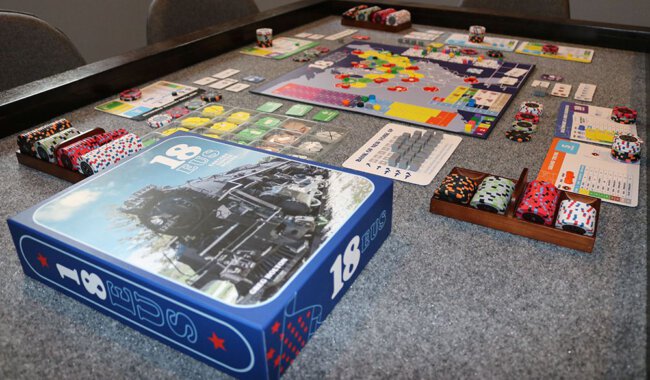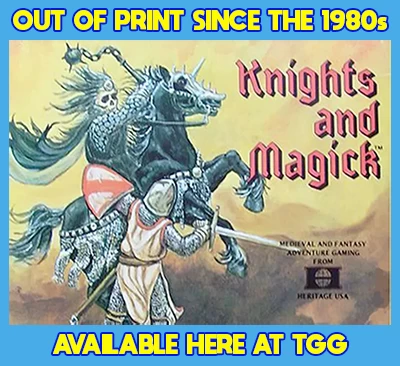
About the game:
18EUS is an 18XX railroad game for 3-5 players that plays in under 4 hours. Players take on roles of “robber barons” competing to amass the most personal wealth over the course of 5-6 sets of stock rounds and operating rounds. The inspiration of the game was to combine favorite elements of multiple previous 18XX games—including 1822, 1862, 18USA, and others—and add a key new feature in the Bank of New York, allowing players to take elective loans or make bank investments. The relative strength of loans versus bank investments is dynamic and dependent on the actions of other players. 18EUS also features tremendous pre-game variability but zero in-game randomness. Players must evaluate strategies both based on the pre-game setup and the actions and potential reactions of other players in order to be successful.
The Bank of New York is the key distinguishing factor of 18EUS. Players, not companies, may take personal loans during stock rounds to fund their investments. These loans are represented as cubes that come off the Bank of New York charter. Alternatively, if players do not hold loans, they may buy shares in the bank. The bank “operates” at the end of each operating round: players holding loans must pay interest, players holding bank shares receive dividends, and the bank stock price (and loan principle) increases. The bank performs better—and loans are worse—when more loans are taken off the charter and when someone owns a bank share.
18EUS features strong private companies auctioned over three rounds. These private companies hold no intrinsic value but can have strong effects on railroad companies and the Bank of New York. A total of 30 private companies are divided into three tranches for the three rounds of auctions. Each round features one fixed private company and three randomly chosen private companies from the tranche, so a total of 12 out of the 30 private companies are present in each game. One special private company, the “Late Bloomer,” has minimal effect until late in the game, at which point it can be exchanged for a large cash sum or any of the unused private companies. The auction mechanism is similar to 1822, although players may bid on all four private companies. Strategies and synergies abound!
Players that enjoy setup variability will be thrilled with 18EUS. Not only are the private companies randomized (with over half a million combinations of private companies possible), the map is highly randomized with differing revenue centers and starting company incentives. Three special, interior, red cities are randomly assigned during the setup of each game, and these cities are either open for everyone to run trains through or open to only one token spot (and easily tokened-out). Every game plays out differently, as the availability of certain strategies, the relative balance of loans versus Bank Shares (based on which private companies are available), and the map development depend on the setup.
In conclusion, 18EUS provides a fantastic play experience that builds on favorite aspects of previous 18XX titles and adds fresh new ideas. It is highly interactive as the strengths of certain strategies depend on the actions and reactions of other players. The decision space is deep and similar to other high-level 18XX games, but it plays out in a shorter time frame. 18EUS is a great next-step game for those who have enjoyed 1846 and has the replayability and depth to keep 18XX veterans coming back again and again.
- Tiny Cyberpunk has Landed in PDF - Apr 25, 2025
- Gary’s Appendix: Hardcover Omnibus is Up for Crowdfunding - Apr 25, 2025
- Save on the Coyote & Crow RPG through Bundle of Holding - Apr 25, 2025




















